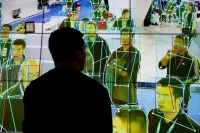Artificial intelligence is a familiar-looking monster
An internet meme keeps on turning up in debates about the large language models (LLMs) that power services such OpenAI’s ChatGPT and the newest version of Microsoft’s Bing search engine. It’s the “shoggoth”: an amorphous monster bubbling with tentacles and eyes, described in “At the Mountains of Madness”, H.P. Lovecraft’s horror novel of 1931. When a pre-release version of Bing told Kevin Roose, a New York Times tech columnist, that it purportedly wanted to be “free” and “alive”, one of his industry friends congratulated him on “glimpsing the shoggoth”. Mr Roose says that the meme captures tech people’s “anxieties” about LLMs.… Seguir leyendo »

















